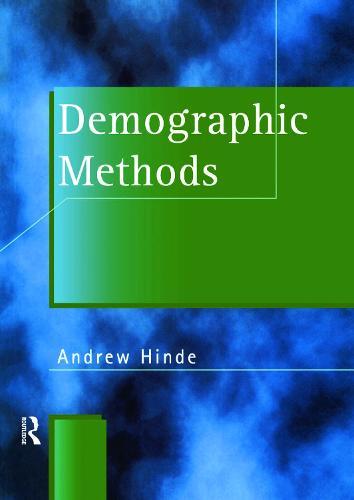Overview
This is a description of the methods used by demographers to analyze fertility and mortality, looking at such areas as survival analysis, the analysis of birth intervals and period parity progression. It also includes sections on population dynamics and population projections. The author covers material taught in introductory courses on population analysis, and also includes more advanced topics and developed methods of analysis. The underlying philosophy behind the approach adopted is that the fundamental principles behind most demographic methods are relatively few in number, and that most of the methods are applications of these fundamental principles. Parallels are drawn between the methods used to analyze mortality and those used to analyze fertility wherever possible, demonstrating the applicability of a number of similar underlying ideas. A wide range of worked examples are included, many of which use demographic data from both developed and developing countries, and solutions are provided. The book is accompanied by a disk which includes Quattro and Excel spreadsheet files containing the data from many of the exercises, plus additional datasets drawn from censuses and surveys.
Full Product Details
Author: Andrew Hinde
Publisher: Taylor & Francis Ltd
Imprint: Hodder Education
Dimensions:
Width: 17.30cm
, Height: 1.90cm
, Length: 24.30cm
Weight: 0.590kg
ISBN: 9780340718926
ISBN 10: 0340718927
Pages: 320
Publication Date: 26 June 1998
Audience:
College/higher education
,
General/trade
,
Tertiary & Higher Education
,
General
Format: Paperback
Publisher's Status: Active
Availability: To order

Stock availability from the supplier is unknown. We will order it for you and ship this item to you once it is received by us.
Reviews
This is the best book on demographic analysis that I have read in the least ten years. It is comprehensive, readable, and jargon-free. --Augustine Kposowa, University of California, Riverside<br> There has been a need for a textbook like this on demographic methods for many years. --Thomas W. Pullum, University of Texas, Austin<br>
This is the best book on demographic analysis that I have read in the least ten years. It is comprehensive, readable, and jargon-free. --Augustine Kposowa, University of California, Riverside There has been a need for a textbook like this on demographic methods for many years. --Thomas W. Pullum, University of Texas, Austin This is the best book on demographic analysis that I have read in the least ten years. It is comprehensive, readable, and jargon-free. --Augustine Kposowa, University of California, Riverside There has been a need for a textbook like this on demographic methods for many years. --Thomas W. Pullum, University of Texas, Austin This is the best book on demographic analysis that I have read in the least ten years. It is comprehensive, readable, and jargon-free. --Augustine Kposowa, University of California, Riverside There has been a need for a textbook like this on demographic methods for many years. --Thomas W. Pullum, University of Texas, Austin This is the best book on demographic analysis that I have read in the least ten years. It is comprehensive, readable, and jargon-free. --Augustine Kposowa, University of California, Riverside There has been a need for a textbook like this on demographic methods for many years. --Thomas W. Pullum, University of Texas, Austin




